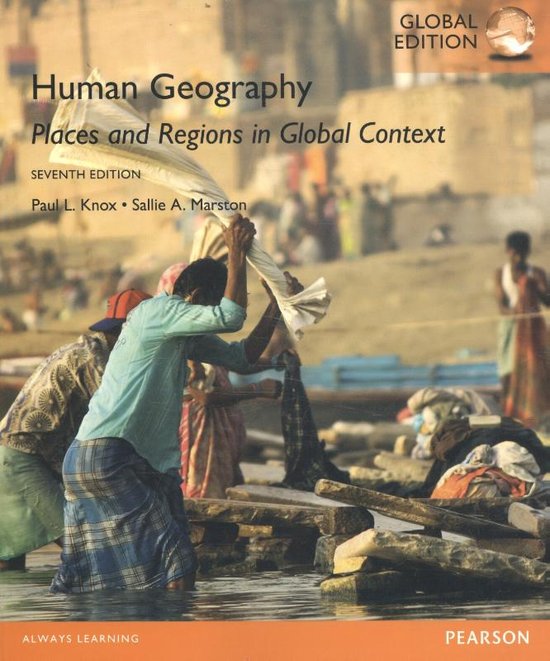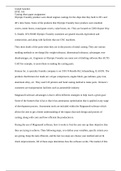Contemporary Research in the Discipline? Discuss Using Examples.
Introduction
Marxist approaches to geography are today more relevant than ever to research carried
out in the discipline. This is due to it being analytical in nature, allowing a deeper level of
research. Marxist geographers are particularly interested in how places develop in
relation to their significance to commodities or capital. In addition, they show an ethical
imperative and importantly focus on how class plays a role in how materials are
produced, distributed and who the prime beneficiaries are in society. Furthermore, they
believe that every key social aspect in society is interlinked and affects how the system
will overall develop. This analytical way of thinking is called Sociological Imagination
and was coined by Wright Mills in 1959 (Mills, 2000). The growing complexity of the
world, caused by globalisation and capitalism, makes this analytical framework of
geography a useful way to interpret how and why our society is developing in the way it
is. To understand the significance of Marxist geography today, it has to be used as a
framework to study the different layers and structure of the circulation of capital within a
capitalist system (Cox, 2005). The following subheadings further develop upon these
points.
, Materials
Marxist geographers understand that every material or commodity that is produced and
sold is measured based on its use and exchange value in society. In today's capitalist
world products are rarely solely produced for their use value but instead are mass
produced in factories by people working for a wage. As a result, producers make the
exchange value of their products a priority when selling to the consumer. This view
makes it that as long as a product can be produced cheaply, and is in high demand, it is
profitable for the company to continue doing so (Corbridge, 1986).
As a result of the use value of materials decreasing in importance compared to their
exchange value, a phenomenon known as Commodity Fetishism has begun to take
place (Billig, 1999). This means that people are no longer connected in relation to the
materials being produced, bought, sold and transported. Instead, company brands and
the product in itself is the only connection. Globalisation has led to consumers having
even less connections to the producers. This has allowed for ethical barriers to be
created, alienating the consumer from the harsh reality that workers in low income
countries can be exploited to maximise profits (Powell, 1999). It can be said that in
today's society the only connection that exists between the consumer and producer is
that the tasks are carried out using capital in the form of money. Nevertheless, many
companies have realised this problem, and have begun the process of de-fetishising
their products, by elevating the producers’ importance in their brands (Wyatt, 2011).











